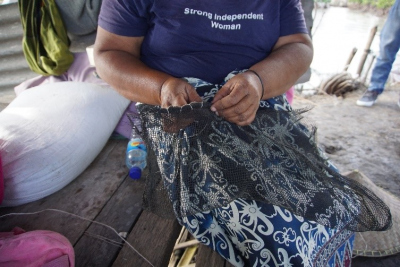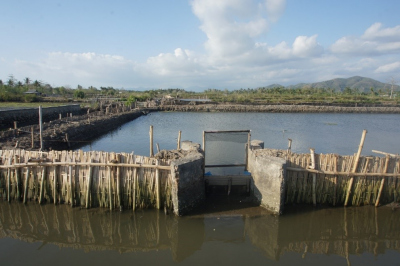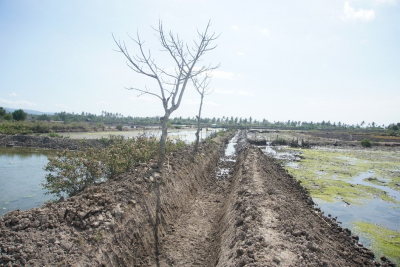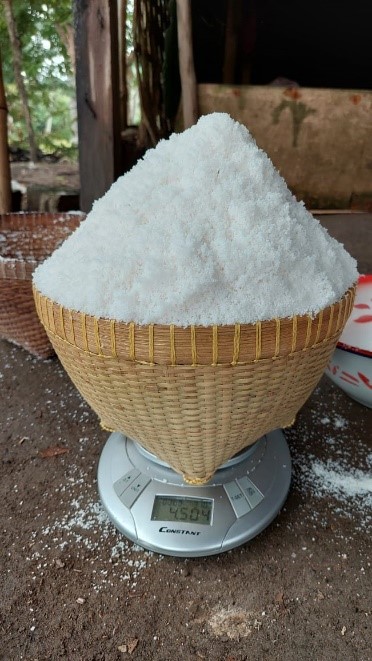- Graduate School GLOMAR
- PhD student reports
- Field Campaigns
- Adiska Octa Paramita
Adiska Octa Paramita
Report of GLOMAR PhD student Adiska Octa Paramita about her field campaign on Lombok, Indonesia from August 2021 to February 2022
I started my PhD in June 2020 after the first wave of pandemic hit the world. It was planned to conduct the fieldwork to Indonesia in 2021. However, the situation was not getting any better until mid-2021. As a social researcher, it is a challenge to conduct the data collection during the pandemic. As an Indonesian national, it is possible for me to come home and conduct the data collection. It took me a while to finalize ethical clearance and Covid mitigation strategy in regards to the face to face interviews and group discussions. After several consultations with my thesis committee, I left Bremen to Lombok in the beginning of August 2021.
After my arrival in the capital of Indonesia, Jakarta, I did 7 days of quarantine before heading to Lombok. It is required to do the quarantine in the city where the international flights arrive. I made the good use of the quarantine by making appointment and interviewing several stakeholders via Zoom. These stakeholders are located in Jakarta as they are the government officials from the relevant ministries for my research topic. Back in August 2021, Jakarta had regional lockdown that temporarily closed the businesses and office buildings. In that period of time, it made me easy to make appointment with many stakeholders on Zoom as they were staying at home and less busy as usual.
I continued my trip to Lombok from Jakarta with some plans I had in mind: I would conduct data collection in two aquaculture communities in West Lombok for the next five months. In the first month, I did many informal discussions to understand who are the key players and problems related to my research topics in the respective communities. Establishing a good communication and relation with the communities where the study located is also important. I started interviews, group discussions, surveys and a social experimental study in the second month. The reason is because I wanted to make sure they are feeling comfortable with me and do not see me as a stranger that asked many things. I lived with them, observed how they live, and joined their daily activities to understand why the do what they do and what are their socio-ecological problems in aquaculture.
The more I talked and met people/stakeholders, the more I felt confident to do my research. I explored the possibility to studies two other aquaculture farmers’ communities on East Lombok. Hence, in total I studied four communities on Lombok that has different way of doing aquaculture. I was supported by local research assistants as translators to help me interacted in Sasak, the local language. Unfortunately, I do not speak Sasak and it is very different with Bahasa, the official language of Indonesia. I asked in Bahasa and they answered in Sasak. They do understand Bahasa but they do not speak it often. It did not limit me to communicate with them, instead they expressed their thoughts better in Sasak.
Time flies and my fieldwork came to end. I am very thankful for the opportunities and the live learning experiences in the five months of data collection with four aquaculture farmers’ communities. Now, I am back in Bremen, having all of this data I feel excited to work on analysis for my PhD thesis. I would like to express my gratitude to the Leibniz Centre for Tropical Marine Research (ZMT), the COMPASS project team member and partners, my thesis committee, and research assistants for enormous support in this research process.






